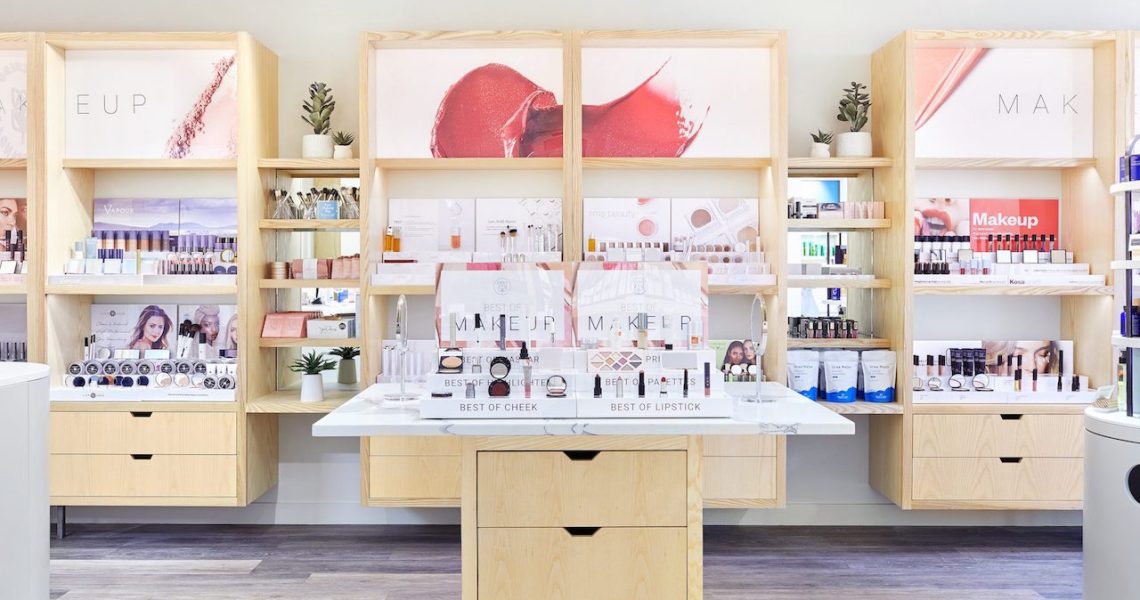In an effort to become a more environmentally friendly company, clean beauty retailer Credo has implemented packaging sustainability guidelines for brand partners.
Credo sells 150 brands, including indie body care brand Bawdy, cosmetics brand Westman Atelier and ingestibles brand Moon Juice. It announced its guidelines to its brand partners on Earth Day, April 22, and expects partners to comply over the next three years. This set of sustainable directives follows Credo’s 2018 updated guidelines around fragrance ingredient disclosures and manufacturing processes. Credo’s sustainability guidelines demonstrate a significant way in which the clean category is evolving. Clean beauty began as a category solely focused on ingredient safety, but that conscious-living ethos has begun to expand into adjacent areas such as using environmentally-friendly ingredients and now, sustainable packaging.
“The biggest disconnect for clean beauty [brands and customers] was what was inside the bottle versus the bottle itself,” said Annie Jackson, Credo founder. “Our company was founded on striving for transparency and looking out for our customers. [We are] working to make positive changes for human health and the planet.”
The first phase of the guidelines stipulates that brands need to eliminate single-use masks and wipes, expand packaging take-back programs and eliminate the usage of PVC, PFAS and BPA plastic materials by June 2021. The next phase focuses on reducing the amount of virgin plastic used, with a requirement that at least 50% of any packaging needs to be replaced by recycled plastic or another sustainable material such as glass, by June 2023. There will also be two ongoing areas for improvement around the design of packages and the implementation of a circular system. For example, product packages should be designed to be refillable or reusable, have clear disposable instructions or be designed in some way to have zero waste. Brands that either choose to or are unable to meet the new guidelines will not be able to sell their products through Credo.
“We’re creating a demand for recycled materials, which will lower the carbon footprint of a product and the beauty industry’s collective carbon footprint,” said Mia Davis, Credo’s director of environmental and social responsibility. “We’re hoping that many brands will also take that packaging requirement and [then] go all the way toward refillable.”
Credo’s announcement adds to a burgeoning trend of retailers enforcing major shifts in sustainability. Fellow clean beauty retailer Detox Market rolled out a 360-degree plan to tackle the global climate crisis in January, while Net-a-Porter created a new category of 27 environmentally friendly brands called Net Sustain, also in January. Clean beauty brand Lush began opening packaging-free “naked” stores in 2019. To a degree, sustainability has expanded beyond a retailer’s brand partnerships, but also to merchandising in-store.
According to Credo, prohibiting single-use masks and wipes will prevent 3,000 pounds of waste from being disposed of annually, and by 2023, Credo will have replaced over 1 million virgin plastic containers with either post-consumer recycled materials or reused and refillable items. According to Euromonitor, between 2010 and 2017, the beauty industry’s plastic usage increased by 17% to 76.8 billion plastic units, not including plastic accessories like product scoopers and application tools.
Bawdy is one such brand that is exploring reusable and refillable options for its butt sheet masks and mask sticks. Sylwia Wiesenberg, Bawdy founder and CEO, said the 2-year-old brand was in the process of rethinking its products and packaging prior to Credo’s announcement. She is developing a kind of cloth sheet mask that can be soaked in a Bawdy serum prior to use, while its mask sticks are transitioning to refillable by October. But sustainable packaging does have additional costs associated with it. Wiesenberg said an upcoming body wash launch in August that uses 95% post-consumer recycled materials has an additional cost of 25-45 cents per bottle to produce, and refillable containers can cost up to $10. These costs will be passed on to the customer, she said.
Credo is not financially assisting brands in order for them to achieve their sustainability goals, but it is putting together a “preferred supplier network,” said Davis. Credo will connect brands partners with suppliers that have been vetted by Credo and can help the brands make sustainable transitions. Credo will be in regular touch with brand partners to keep track of their progress and assist them as needed, through one-on-one conversations or the company’s monthly brand conference calls. Credo will require brands to submit some documentation demonstrating compliance of the guidelines by June 2021 and reserves the right to audit brands, said Davis.




